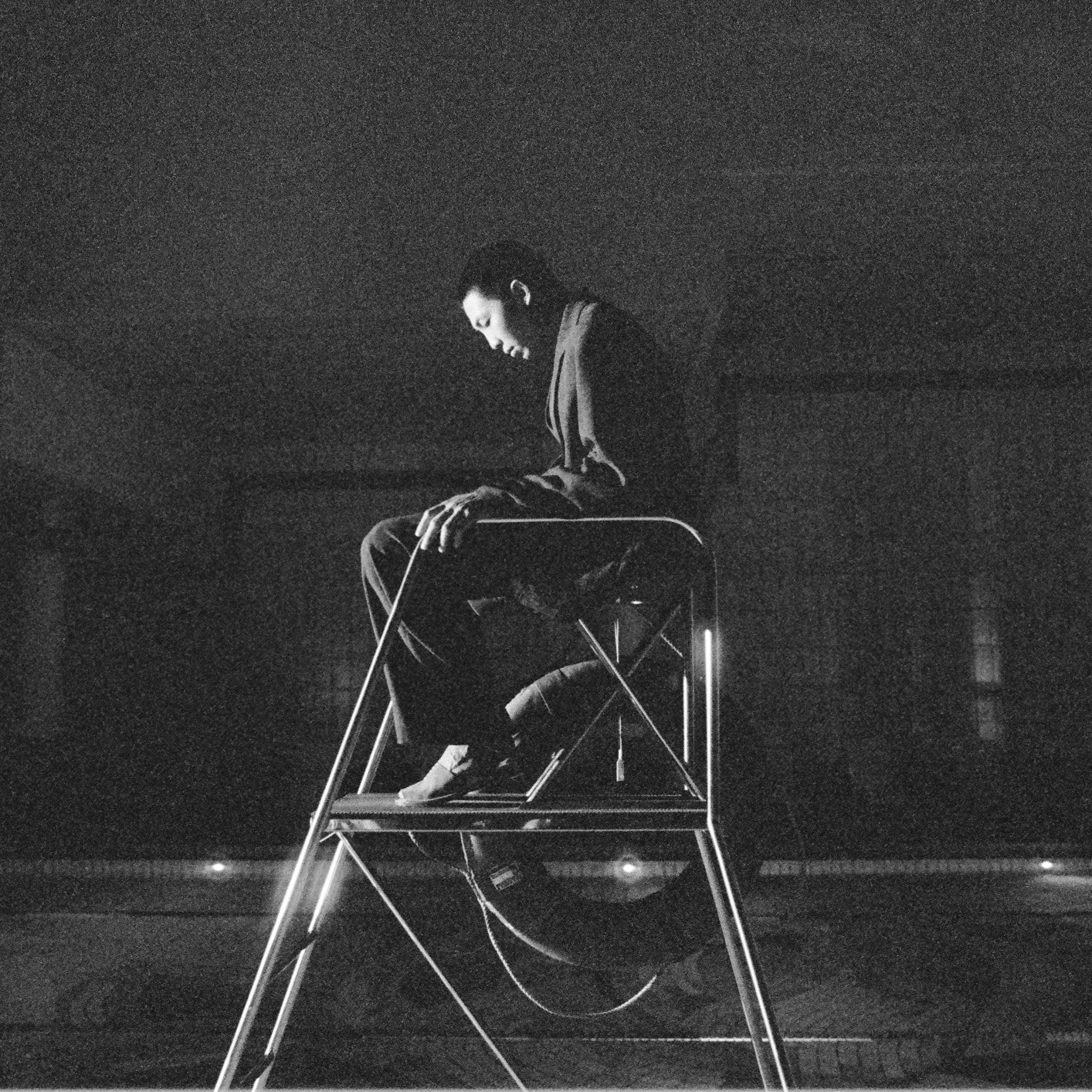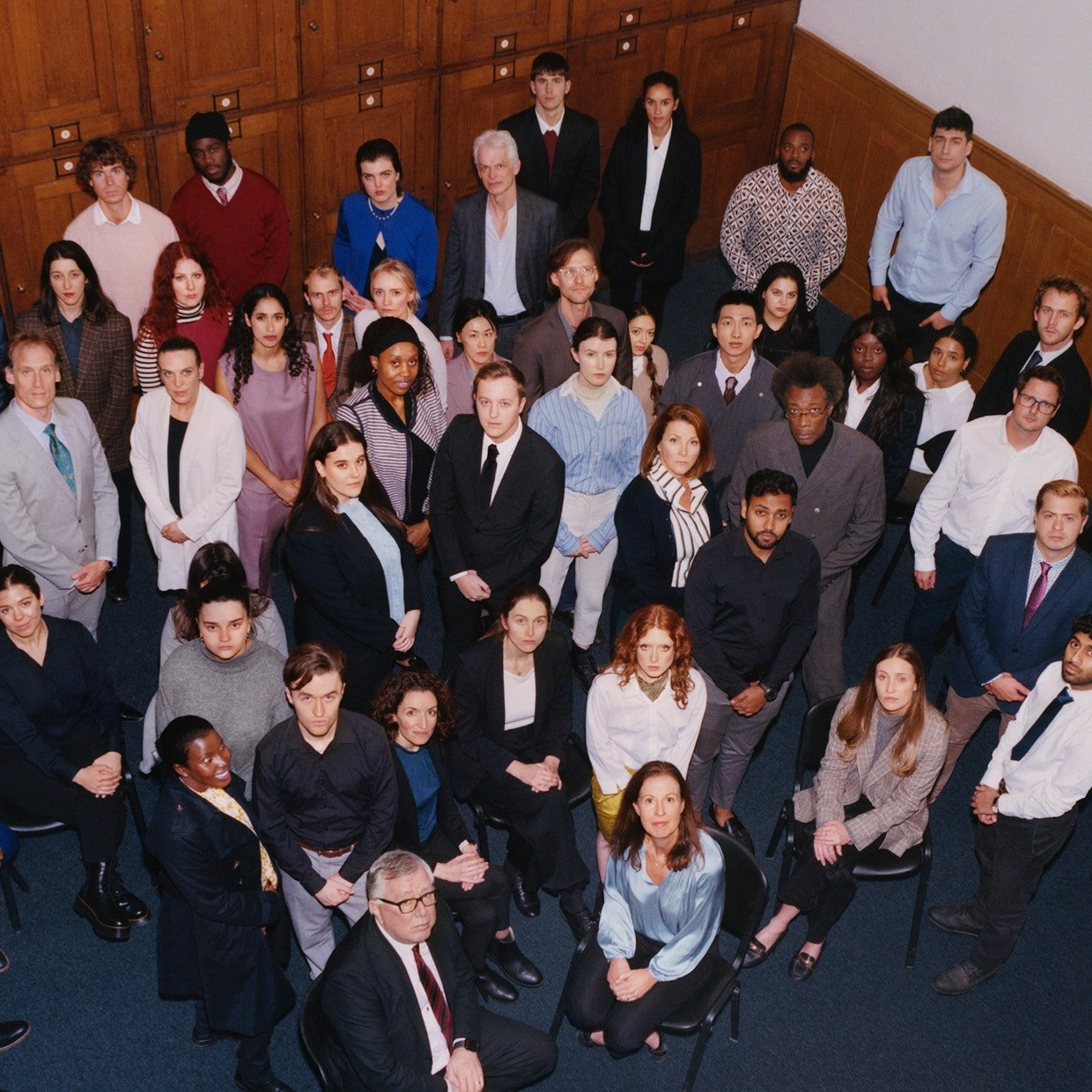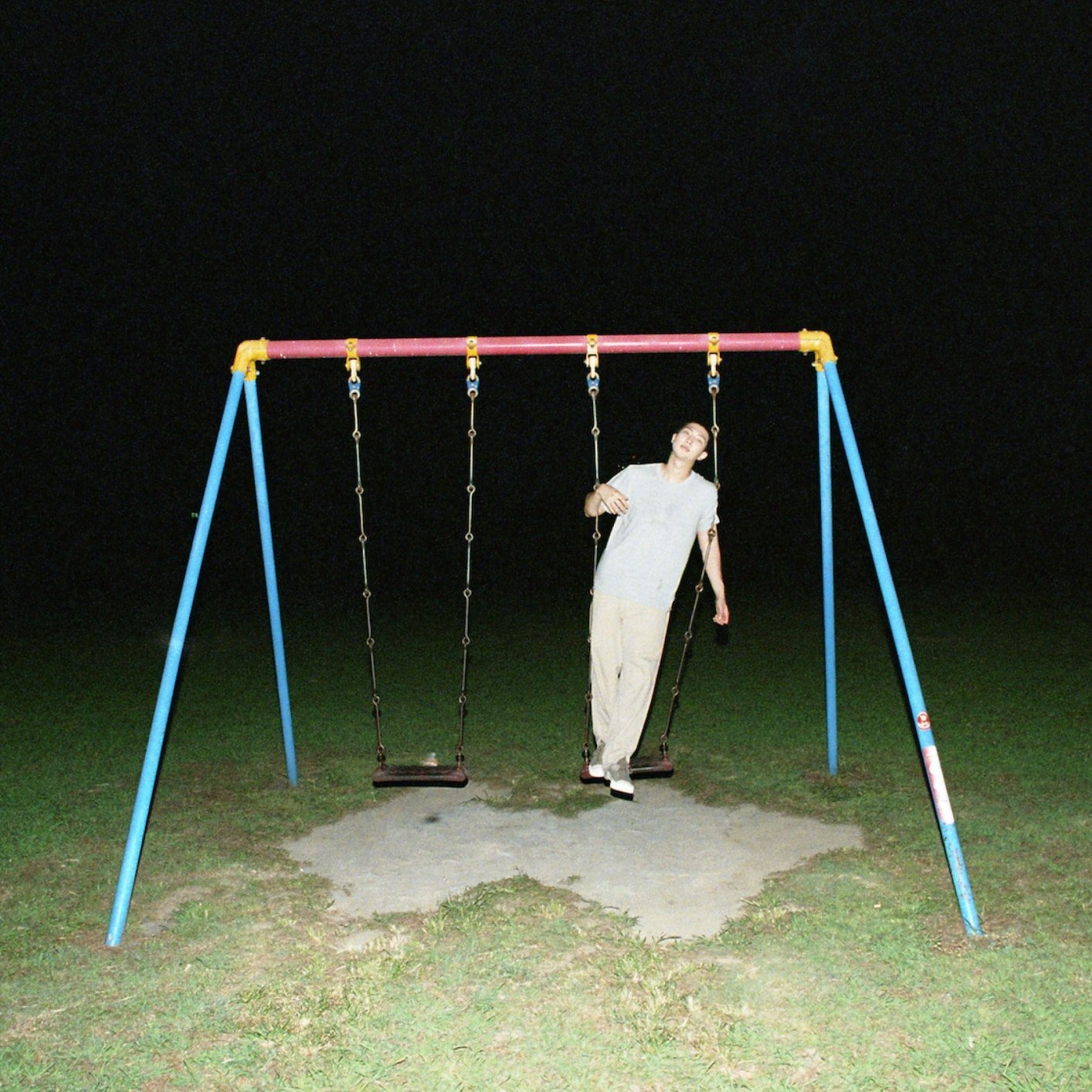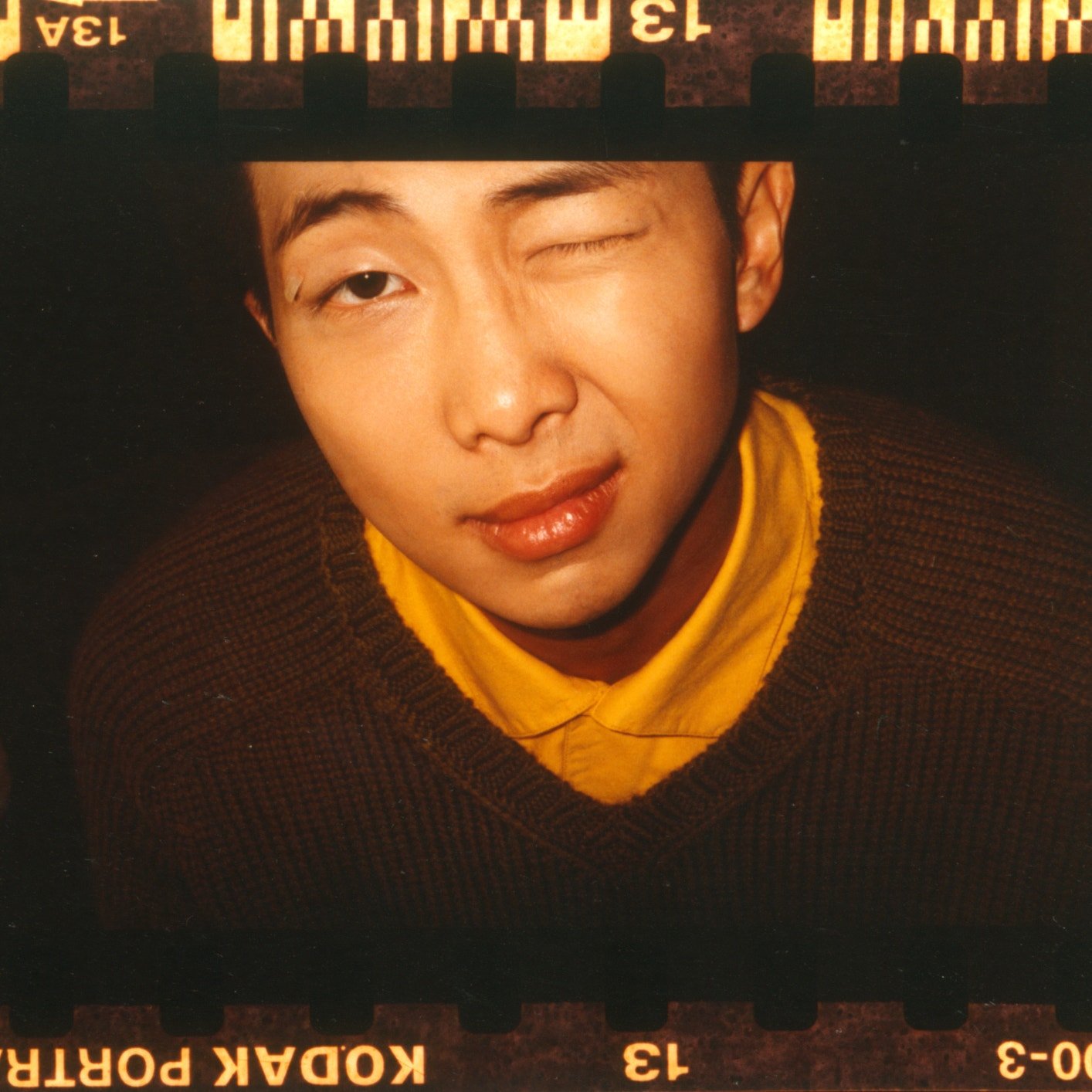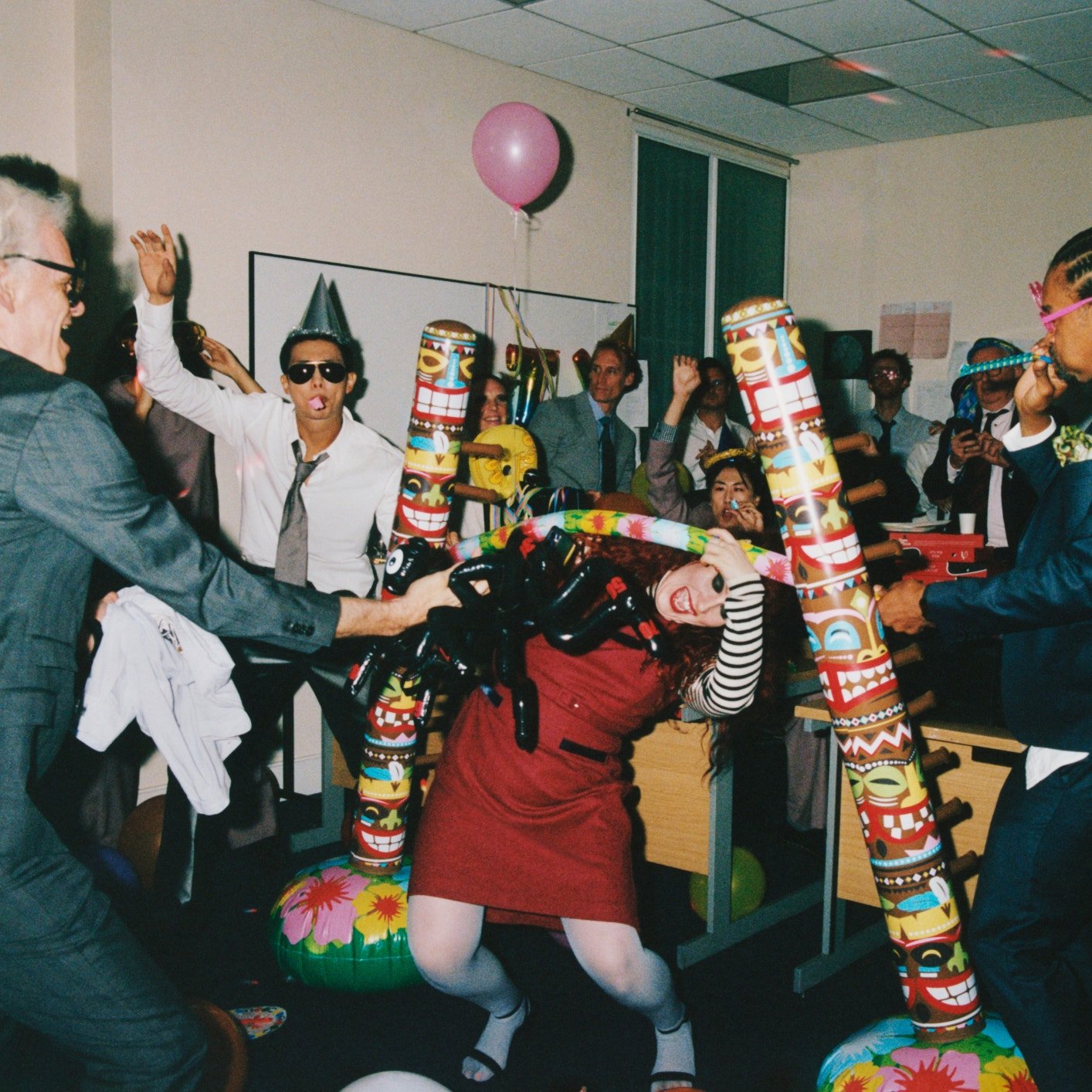RM | Right Place, Wrong Person is a brilliant exploration of the self
Namjoon’s Right Place, Wrong Person (RPWP) oscillates between cheeky playfulness and painful confessions of inadequacy.
RM’s second solo album is a dialectical exploration of the self. It holds tension and relief in all areas of its sound and lyrical production. It creates a theatrical and trippy journey through inadequacy. It uses various genres that are often linked by the use of bouncy baselines and eerie synth sounds. Namjoon loses himself to find himself by the end of this hauntingly beautiful art piece.
Confession, I have been experiencing existential dread and alienation in all areas of the human experience. There is a gnawing thought that has not left my mind for the past year, “I was not made to survive this society. I lack the skills to navigate it. And in my 29 years of life, I have been unable to adapt to it. I feel inadequate and feel like a failure.”
After BIGHIT MUSIC announced the album on April 24th, the roots of that thought grew larger around my head and neck. I thought, “The truth is, I’m the right person in the wrong place and the wrong system.”
As RPWR promotional concept photos rolled out, the roots of that thought kept growing and invading every crevice of my brain. The photos kept enhancing the uneasiness I felt. Why is Namjoon dressed as an office worker? What is he doing wearing an ill-fitted suit while sitting on a lifeguard chair? He is too tall for that swing set. He is too small in that frame.
The art direction elicits a sense of feeling out of place, and being an outsider. I felt that my anxiety thoughts were being materialized in those concepts. As the rollout continued, the roots in my brain grew large enough that I felt I could not get any oxygen. It was suffocating…
I spent the past two days studying RPWP. Experiencing the album in its entirety title has brought solace to my anxiety-filled-down spiral. The album takes us on a journey through Joon’s mind. We are led through a winding road. We go back and forth between anxiety, isolation, and community. We explore genres never before explored by Joon.
Sometimes we see him finding meaning and safety in communion with his friends. Other times he is lost while festering anger. In other songs, he finds himself by losing himself. This album is filled with contradictions of sound and themes. It is a deeply personal exploration of Kim Namjoon's mind and feelings. And it is brilliant.
We begin our journey with the introductory tracks Right People, Wrong Place, and Nuts. Reminiscent of prog-rock, the first track employs breathy sounds over a hypnotic baseline and a contrasting panning synth. It's a psychedelic beginning to what Namjoon and Team RM will present in the album: experimentation, dissonance, and the bending of musical genres.
Nuts extends RM’s exploration of human relationships. San Yawn’s involvement shines through in this song. The song’s cheeky double meaning of the verses is reminiscent of Balming Tigger’s satirical approach. The lyrics are cleverly written, but at the core of them, we find heartbreak and incompatibility. The initial funkiness and sarcastic lightheartedness of the mix transition to a more distinctive progressive sound. Two riffing guitars are introduced a little later. Suddenly, the production dials back and RM’s darker and moodier delivery is more reminiscent of Spoken Word than his usual rap.
Out of love continues the psychedelic production of the first two songs. But gradually introduces a jazzy saxophone to the left side of the mix. We experience heightened anger in RMs discursive delivery of the lyric, like he is reading his journal or voicing his internal monologue. His interpersonal struggles and his public persona are once again clashing in a struggle of human relationships. He echos previous statements of his own there is a very thin line between love and hate.
The album sonically transitions with Domodachi and ? (Interlude) by bringing a more jazzy production.
It is important to highlight that Team RM uses the previous saxophone that came in late on the mix of the previous title. And chooses to start Domodachi with that same saxophone, front and center. The tension increases as we experience a change in emotionality, anger, and hostility. The song creates a fast-paced satire of the subject of Namjoon’s anger. With this transition, instead of letting the hate consume like previously. He allows himself to mock it by dancing to it.
Little Simz enters the song as it switches up in tempo. She swings masterfully with her delivery over a fast-tempo drum pattern. Honestly, I just love her addition to the song. Whoever thought of contacting the British rapper just… ate (sorry I can’t think of a better way to say it). Whoever came up with this collaboration: whether it was RM himself, Team RM, or the A&R, made a great decision.
While listening to this track several times, I wondered about the decision to have her come in on a drum pattern reminiscent of UK Garage. Her album, Sometimes I Might Be an Introvert shares some of the same musical principles to RPWP. It's experimental with funky sounds and beat switches and it's deeply introspective.
Simz even references her own UK Garage song Gorilla, “I already told them, that I am a gorilla” on Domodachi. The production on this album has been so particular and careful that it seems fitting Team RM gave Little Simz a perfect platform to showcase her outstanding craft. She was already an established artist in her own right. They took care in presenting each of the artist’s strengths while introducing her to other audiences.
? (interlude) releases some tension held by the previous song while still maintaining the jazz elements. It is more airy and serves as a transition into yet another genre and theme switchup.
Groin, Heaven and Lost! provided the hopeful optimism in which I found solace in my internal turmoil. In this trio of songs, RM embraces his anger. He finds peace despite the constant criticism. He finds himself by losing himself.
In Groin, anger reaches its climax. But instead of brooding in resentment and letting it fester inside, RM takes us on a ride to find his freedom. He frees himself by verbalizing the anger he has had to suppress as a leader and public figure. He holds no barred. The simple bass line utilizes repetition to convey the paradigm shift in RM’s mentality. It's simple. It’s swingy. It's bouncy. It's freeing.
On Heaven we find him —once again— taking the constant hate and criticism he has received time and time again. But this time he takes it in stride. His detractors could take a knife at him and watch him collapse, and it would affect his chill shoegaze-y vibes.
He no longers lets his anger fester inside. He no longer needs to mock the criticism like he did in Domodachi. He has found happiness even when surrounded by devils.
The Lost! MV poster shows Joon lost in a labyrinth. I was curious about the office worker imagery. I identified with it. Being a worker makes me feel like a mindless cog in a monstrous machine. I feel lost in that role. And it is the main reason for the existential dread I have experienced this past year. I feel deeply inadequate in a corporate environment. Completing menial and redundant is a never-ending surrealist nightmare. I studied philosophy, I do absolutely feel estranged in an environment where my only value is to make a profit for others. I feel alienation from my labor and personal values.
Lost! starts with a vinyl scratching. The old-school technique evoque an image of Namjoon going back in time and finding his old teenage self.
In the track, Namu throws himself into unknown environments. He leaves behind his role as leader. He lets himself be pulled by the absurdity of his situation. He experienced in his late twenties, for the first time, a foundational experience that most of us had in our late teens. Going clubbing, losing yourself in the music, and getting black-out drunk. And Finding himself in that way.
It honestly breaks my heart to think of how much responsibility Namjoon took at such a young age. For context, I am just 5 days younger than him. I cannot imagine myself having led six other people while I was 14. I cannot imagine carrying the burden of keeping a company afloat while also developing my craft. Of course, he was able to do that because he is extraordinary. But that responsibility still took away his innocence and freedom to find himself aimless losing himself as a teen.
The female voice that sings alongside RM offers a playful innocence that RM lost at 14. It is a beautiful production in which meaning, once again, arises from the duality in tension between having lost his innocence at a young age and finding it again fifteen years later. By juxtaposing his deeper voice with a higher one. It’s like he is singing with his younger self.
Around the world in a day sets RM back in the middle of the same criticism he has been facing for over a decade. The addition of Moses Sumney is once again the perfect choice for a collaboration. He delivers delicate and dreamy vocals to the shoegaze song. After his transformative journey, Joon is a different person. All the tension and anger he felt from feeling like an inadequate outsider is no longer present. He does not need to guide his anger by the rigidity of others’ right and wrong. He has outgrown seeking external validation. He found a peaceful contentment.
In ㅠㅠ (Credit roll) Namjoon expresses his gratitude. Despite the painful hardships has chosen to share with us. He is grateful to us. He put in so much love, care, and dedication to give to us. I’m grateful to him.
The Come back to me MV feels like an exercise in exploring everything we could have become. Sometimes we find ourselves at a party that seems to not end. Where the magical realism of space leads us through doors that show different parallel versions of ourselves. How do we forgive ourselves for not becoming some of those possibilities? How to let go of the paths we did not take? How do you go back to who we are today, to this universe and this timeline, after experiencing the infinite possibilities of being?
In Film and Phenomenology, mirrors and reflections are symbolic artifacts that often allow us to perceive what we cannot see with our own eyes. How do we go back to a place where even washing our face seems difficult? By recognizing our reflections. By unveiling that which we hide from ourselves. By being aware that where we are is just fine. By accepting the painful experiences that inform our lives. By seeing the divine in ourselves.




Through RPWP I experienced a sense of belonging and communal understanding. I realized that am not alone in feeling an existential dread derived from feeling empty in the later part of my twenties. Namjoon and I have lived vastly different lives. The root of our anxieties seems different. Right now, He is serving in the South Korean military and I am in my little Mexican home facing my struggles. And yet, we have experienced a debilitating sense of inadequacy and feeling out of place. As has all ARMY around the world.
His deeply personal and introspective art manages to reveal the spirit of our time: loneliness, inadequacy, helplessness.
We have all felt lost in systems or roles that are larger than us. Drowned by the tension between our internal desires and our external expectations. With RPWP, Namjoon has taught me that the meaning of life can be found by losing myself. And then resurfacing that which I have suppressed long ago.
I’m so proud of Namu for experimenting with alternative sounds and bringing together the incredibly talented Team RM. Besides Joon’s beautiful performance, I particularly enjoyed the performance of the bass and the drums. As well as the musical composition as a whole.
I am grateful to him for letting himself get lost in the process. I feel so grateful to experience the creative freedom Namjoon worked so tirelessly to achieve by sacrificing his own. I am a Festa 2022 ARMY, so I have only experienced this Namjoon. The one who got lost and managed to find peace within himself. It is an honor to be inspired by him. It is an honor to rediscover the meaning of alongside him.
Anyways,
I have made a playlist with RPWR songs and other songs that I feel help understand the differences in genres.
Since RPWP is so experimental I have added everything from progressive metal, trip-hop, Motown, hip-hop, psychedelic, grunge, synth-pop, post-bop.
*** disclaimer below
*** disclaimer
I am not usually one to get very academic with the genres of songs. I think most songs live in a continuum: blending a little bit of this and a little bit of that into each song. However, I feel that the changes in emotionality also coincide with switches in different genres and modalities of sound. I honestly think it's part of the brilliance of this album. So, in this essay, I did place more emphasis on music genres than I would usually do. I am not a music producer nor do I have training in music theory or practice. I sometimes garage band in the same way we would use Snake in the 2000s… so, there is a big chance I might have written some nonsense about music genres. 🤪 Please let me know if you see some wild things being said.
Connect with me:
